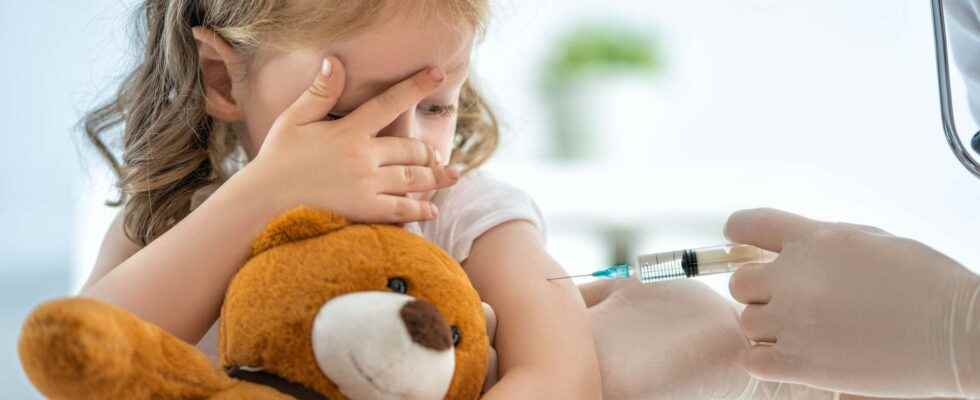The HAS has declared itself in favor of the vaccination of 5-11 year olds, without access conditions. Children will receive a reduced dose of the Pfizer vaccine. What do we know about its effectiveness and side effects?
You will also be interested
[EN VIDÉO] Are we protected against Covid having been infected? Coronavirus infection induces an acquired immune response. But for how long is it effective against variants?
The vaccination against the Covid-19 of children aged 5 to 11 is a sensitive subject. Since December 15, 2021, the children at risk of developing a serious form of the disease or living in the entourage of immuno-depressed or fragile people can be vaccinated. According to Public health France, this concerns about 400,000 children.
Faced with the epidemic outbreak that France has been experiencing since the end of November, it is a question of generalizing the vaccination to all children from 5 to 11 years old, without conditions. This proposal comes up against the reluctance of parents but also of certain doctors and scientists who think that vaccinating children will have little effect on the spread of the disease.epidemic. The High Authority of Health (HAS) today, December 20, 2021, declared itself in favor of extending vaccination to 5-11 years, without obligation and without this not conditioning the issuance of a health pass.
Effectiveness of Pfizer vaccine in children
Only the vaccine Pfizer will be given to children, Moderna is not recommended for children under 30 years of age. This is the same formula as that administered to adults, it is simply less concentrated: 10 µg ofMRNA for children against 30 µg for adults. Phase 2/3 clinical trials carried out on approximately 2,200 children conclude that a dose of 10 μg of mRNA is sufficient to protect them against the symptomatic forms of Covid-19.
Among the 1,500 children who received two doses of the vaccine Pfizer spaced three weeks apart, 3 cases of Covid-19 were identified against 16 in the group placebo. The efficacy estimated from these results is 90.7% against symptomatic forms of Covid-19. No deaths occurred during the clinical trial.
Pain at the injection site, fatigue and headache are the most common side effects in children. But the rarest, such as cases of myocarditis, may have been overlooked because of the small size of the cohort.
Children and severe forms of Covid-19
In a minority of cases, children can develop severe symptoms of Covid-19. A set of inflammatory disorders, called MIS-C, which doctors know how to deal with but which can also be lethal. In the United States, 52 children have died from MIS-C since the start of the pandemic out of 5,973 cases listed by the CDC. Boys, aged 9 and over, of African American or Hispanic origin are the most affected.
Does the vaccine lower the risk of transmitting the coronavirus in children and in what proportions? The tests did not answer this question. Through analogy With what we see in adults, the vaccine may well reduce the risk of transmission, without completely canceling it. According to the latest data of Public Health France, 6-10 year olds and 11-14 year olds are among the age groups where the rate ofimpact from virus is the highest:> 1,000 cases per 100,000 people and> 700 cases per 100,000 people respectively (figures for week 49).
While the data on childhood immunization is reassuring, there are still some unanswered questions. How long does vaccine protection last? Will they also need a booster dose? What is the incidence of serious side effects like myocarditis? All these questions still require the work of scientists.
Vaccinate children, how does it work?
In its opinion, the HAS indicates that college students under 12 should be given priority. Before receiving the injection, they will need to do a serological test quick, called Trod, to check for the presence ofantibody anti-S protein or anti-nucleocapsid in the serum. If this test comes back positive, the child will only receive one dose of vaccine instead of two doses which will be spaced 21 days apart for the others. This vaccine is not compulsory, only recommended.
Interested in what you just read?
.
fs6
